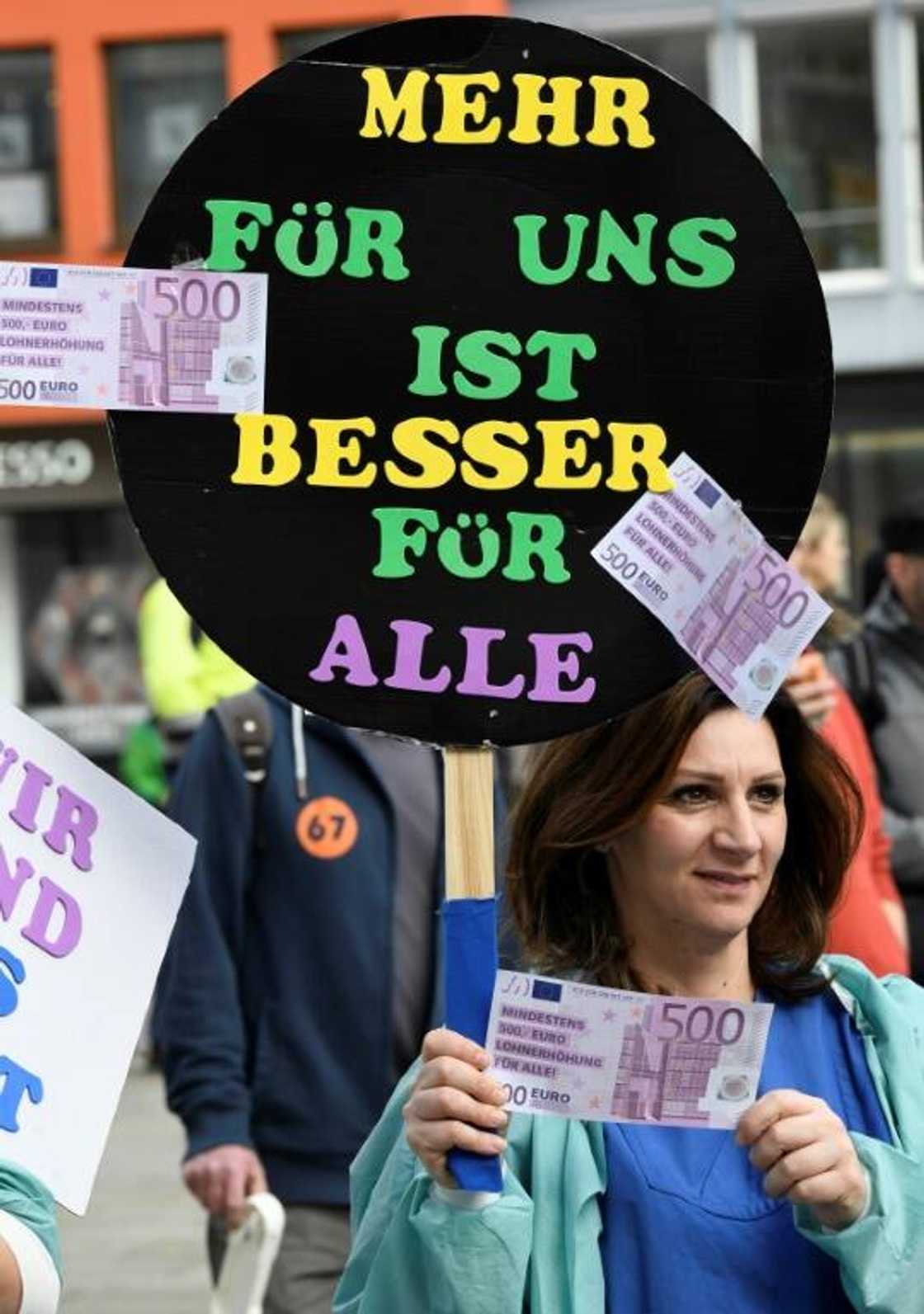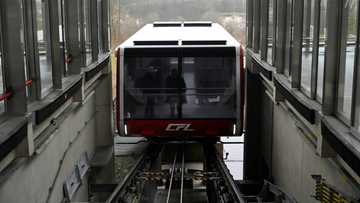German unions call major transport strike

Source: AFP
PAY ATTENTION: Celebrate South African innovators, leaders and trailblazers with us! Click to check out Women of Wonder 2022 by Briefly News!
Transport across much of German will be paralysed Monday as workers strike demanding higher wages to cope with surging inflation, the latest industrial action in Europe's top economy.
Staff at airports, ports, the railways, buses and subways will walk out across large parts of the country, the Verdi and EVG unions announced on Thursday.
"We think there will be extensive participation in the strike," Verdi chief Frank Werneke told a press conference.
EVG chief Martin Burkert accused employers -- who have mostly refused hefty pay demands -- of "turning a blind eye to the economic hardship of the workers that we represent".
It follows a series of strikes in recent months in Germany in numerous areas, from the postal service to airports and local transport.
Like in many other countries, Germans are struggling with high inflation -- it hit 8.7 percent in February -- after Russia's invasion of Ukraine sent food and energy costs soaring.
PAY ATTENTION: Follow us on Instagram - get the most important news directly in your favourite app!
Verdi represents some 2.5 million public sector employees, while EVG represents workers on the railways and at bus companies.
It is rare for unions to join forces to call a strike in Germany, and it follows a series of failed talks with employers in recent weeks.
Verdi is demanding a rise of 10.5 percent in monthly salaries, while EVG is demanding a 12 percent rise for those it represents.
Employers, mostly the state and public sector companies, have so far refused the demands, instead offering a rise of five percent with two one-off payments of 1,000 ($1,100) and 1,500 euros, this year and next.
Spreading strikes
The announcement of fresh industrial action came ahead of a third round of salary negotiations for public sector workers, which begin on Monday.
Transport services have already been hit by strikes.
Earlier in March, Bremen, Berlin, Hamburg and Hanover airports cancelled more than 350 flights after security staff walked out while bus and metro staff in Frankfurt also staged a strike.
On the other side, employers representatives are warning that unions are making unreasonable demands and risk alienating the public with the growing wave of strike action.
"What impression is created of the public service, especially at a time when we are talking about a disproportionate shortage of skilled workers?" said Karin Welge, from the Confederation of Municipal Employers' Associations.
"We have a common duty to strengthen the public service."
Some unions have however succeeded in winning big pay increases.
Postal workers won average monthly increases of 11.5 percent earlier in March, and in November IG Metall, Germany's biggest union, won hikes totally 8.5 percent for almost four million employees that it represents.
Strikes have spread across public services, from hospitals to nurseries, as the hard-fought pay talks play out.
Earlier this week, teachers staged a demonstration in Berlin.
"We are a rich country and I think society should be able to say that we give children... a good education," said Jan Exner Konrad, 34.
"We just can't guarantee that right now because there are far too few teachers and many students in the classes."
PAY ATTENTION: Сheck out news that is picked exactly for YOU ➡️ click on “Recommended for you” and enjoy!
Source: AFP




